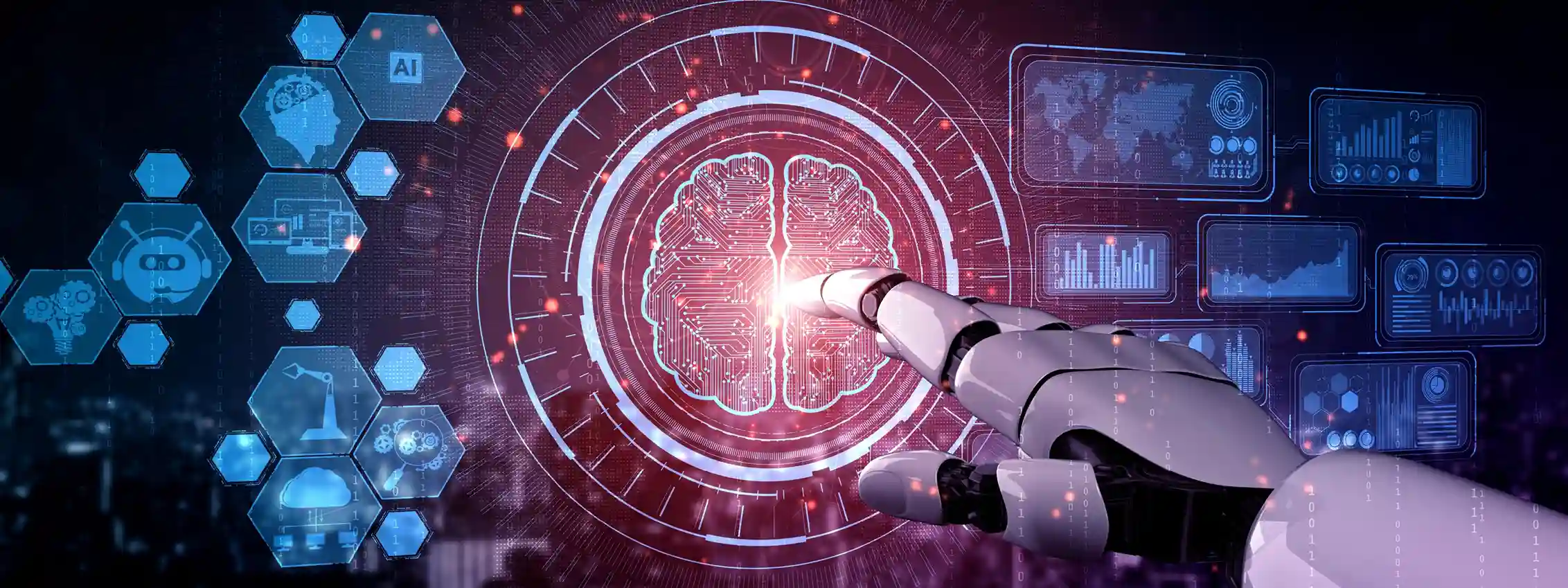5 Technology Challenges and Their Solutions for Manufacturers in 2024
Author: Inza Khan
As we approach 2024, the manufacturing sector is expected to see growth with an annual projected rate of 3.57% until 2028. This growth is influenced by various factors, primarily driven by the adoption of smart manufacturing.
However, this transition comes with its challenges as manufacturers adapt to a new aspect. The move towards smart manufacturing represents a departure from traditional approaches, bringing about several challenges. In this blog, we explore the technology challenges that the manufacturing industry is likely to face in 2024 and discuss practical solutions.
1- Cybersecurity
Challenge:
Cybersecurity challenges in the manufacturing industry include phishing attacks, where cybercriminals use deceptive emails and fake websites to compromise business data. Ransomware is another significant threat, encrypting files on networks until compliance with hackers’ demands, which may involve selling or disclosing critical data. Supply chain attacks target vulnerabilities in partners’ and suppliers’ systems, potentially causing disruptions. Intellectual property (IP) theft is also a concern, as cyber attackers continually refine techniques to infiltrate networks undetected.
Solution:
Employee education is important for raising awareness about cyber threats and helping staff identify these issues. Implementing strong password policies and encouraging two-factor authentication enhances access controls and strengthens defenses against cyber intrusions. Regular software updates and prompt application of patches are essential for addressing security vulnerabilities and minimizing the risk of exploitation. Establishing reliable methods for managing data backups provides a defense against the impact of ransomware attacks and enables organizations to recover data. Lastly, fostering open communication about cybersecurity risks within the workforce helps employees stay vigilant against potential threats.
2- AI Integration
Challenge:
The integration of Artificial Intelligence AI in manufacturing faces various challenges. Firstly, the effectiveness of AI integration depends on having enough relevant data, which can be tough due to the complexities of obtaining and managing such data. Secondly, manufacturing processes are diverse and intricate, requiring AI systems to adapt and optimize different production methods and supply chain dynamics. Thirdly, there is a shortage of skilled professionals who can understand and effectively implement AI technologies in the industry. Lastly, the concern about additional costs, including investments in technology, training programs, and necessary infrastructure, raises questions for manufacturers evaluating the return on investment (ROI) in AI integration.
Solution:
For AI integration into the manufacturing industry, manufacturers must ensure there are enough relevant data available. This might involve investing in technologies aligned with manufacturing needs, second, developing AI systems that can adapt to the diverse and complex nature of manufacturing processes for improved effectiveness. Third, to address labor shortages, it’s essential to implement workforce development programs, providing training to existing employees in AI-related skills. Lastly, conducting thorough cost-benefit analyses is necessary to deal with concerns about extra costs.
3- Workforce Upskilling
Challenge:
There is a growing skill gap in manufacturing due to the rapid advancement of IT, particularly in areas like data analytics, cybersecurity, cloud computing, artificial intelligence, and robotics. This challenge makes it difficult to find and keep skilled IT personnel needed for effective technology management within manufacturing. Additionally, there’s a simultaneous need to train and retrain the existing workforce to adapt to technological changes.
Solution:
The manufacturing industry and educational institutions can collaborate to tailor educational programs, addressing the shortage of skilled IT personnel. Additionally, utilizing modern app development platforms with low-code or no-code environments emerges as another solution. These platforms empower the existing workforce, including individuals with limited coding experience, to actively contribute to implementing digital solutions within the manufacturing context.
4- Interoperability and Integration
Challenge:
Manufacturers face significant challenges in integrating and making different systems work together smoothly. The complexity arises from trying to combine older systems with newer technologies, causing issues in their seamless integration. Additionally, modern systems use different data formats and communication methods, creating barriers that hinder the smooth flow of information and collaboration across the manufacturing value chain. These challenges impact efficiency and productivity in the industry.
Solution:
Manufacturers can establish standardization protocols for uniform data exchange, ensuring compatibility across systems, and embrace open architectures to facilitate smoother collaboration between different technologies. The use of Application Programming Interfaces (APIs) and middleware is effective for communication between diverse software applications. Shifting away from complex legacy Enterprise Resource Planning (ERPs), manufacturers can opt for low-code app development platforms, that provide a simpler approach to digital transformation.
5- Data Management and Analytics
Challenge:
When it comes to data management and analytics, the use of sensors and interconnected systems has generated a large amount of data, making it difficult to handle and extract useful insights for decision-making. Manufacturers have to ensure data quality and integrity because inaccuracies can impact analyses and operational efficiency. Integrating various data sources, including production machinery and supply chain systems, presents a hurdle for comprehensive analytics.
Solution:
Manufacturers can solve these issues by implementing practical solutions. They can prioritize establishing robust data governance frameworks, including defining clear data ownership, adhering to quality standards, and implementing policies for data access and usage. This strategic approach forms the foundation for effective data management. Additionally, manufacturers can recognize the importance of using accessible advanced analytics tools and platforms to derive actionable insights from extensive data. These tools, capable of handling large datasets and conducting detailed analyses, present results in a straightforward manner.
Conclusion
As the manufacturing industry moves towards 2024, the expected growth is linked to the adoption of smart manufacturing technologies. Despite the challenges in implementing IT for manufacturing businesses, not embracing technology can be even more costly. Therefore, manufacturers need to invest in practical solutions that can enhance their IT implementation. Manufacturers who successfully achieve this are better positioned to gain a competitive advantage in a rapidly evolving manufacturing industry.




